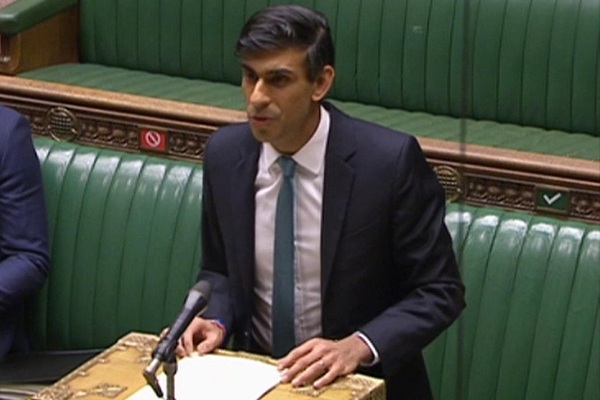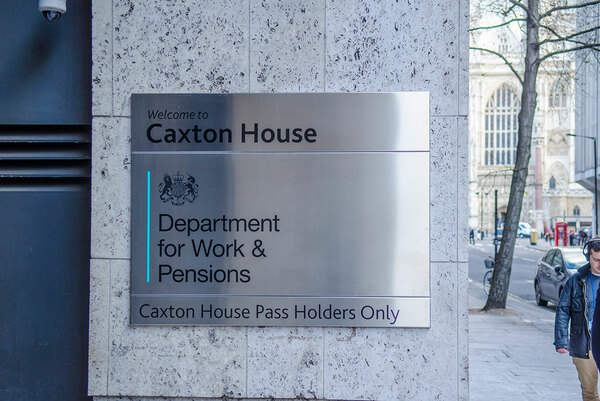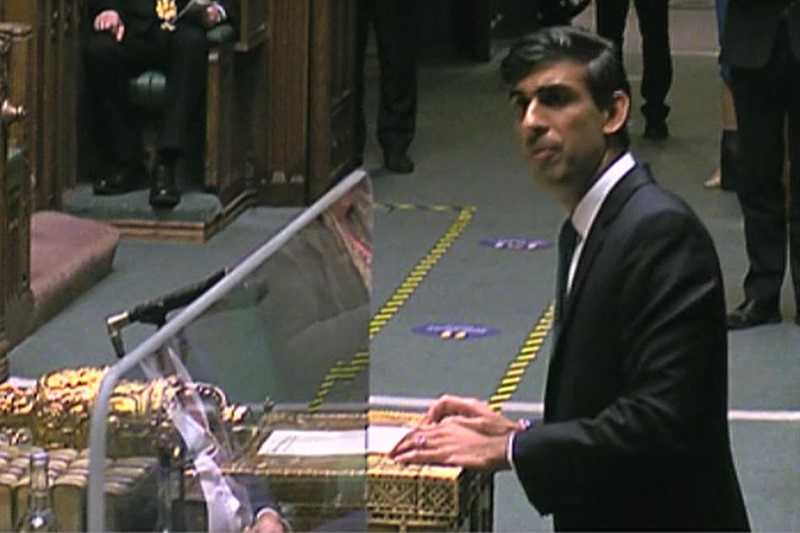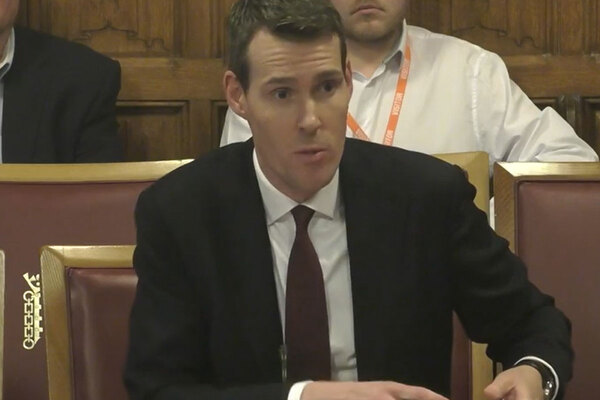You are viewing 1 of your 1 free articles
Universal Credit uplift to be extended for six months
The £20-a-week uplift to the Universal Credit standard allowance will be extended for six months, chancellor Rishi Sunak has announced.
Delivering the Spring Budget today setting out his plan to help the economy recover from the COVID-19 pandemic, Mr Sunak said the government is “extending our support for the lowest paid, and most vulnerable”.
“To support low-income households, the Universal Credit uplift of £20 a week will continue for a further six months, well beyond the end of this national lockdown,” he added.
Working Tax Credit claimants will be given equivalent support for the next six months, in the form of a one-off £500 payment.
It means Universal Credit entitlements are set to be cut at the same time as the furlough scheme ends in September.
The government announced the £6bn boost to the welfare system last March shortly after the coronavirus crisis hit the UK, leading to a surge in redundancies as businesses were forced to shut their doors.
But documents accompanying the Spending Review in November indicated that the £20-a-week would be cut from April with the standard allowance returning to previous levels.
Ministers have come under significant pressure to extend the uplift, including from the housing association sector.
The G15 group of large London landlords warned earlier this week that the cut could have a major impact on the economy, sucking £1.2bn of revenue from the housing sector.
Extending the uplifts to Universal Credit and Working Tax Credits for six months is expected to cost the Treasury around £2.9bn.
Spending Review documents from November also revealed that Local Housing Allowance (LHA) rates, which determine how much welfare support for housing costs private renters can claim, will be frozen from 2021/22 onwards.
Local Housing Allowance (LHA) rates were raised in March 2020 to reflect the cheapest third of rents in each area, boosting an estimated 1.5 million households’ incomes by an average of £600 over the year.
The Budget costings document released today indicated that the freeze will be kept in place but reviewed each year.
It said: “Local Housing Allowance will be maintained at the elevated cash rates agreed for 2020/21, future increases will be revisited annually as part of the uprating review.”
Among other changes to the welfare system unveiled today, the government will delay reintroducing the Universal Credit minimum income floor – suspended last March – by three months until the end of July and “gradually reintroduced” thereafter.
The minimum income floor sets a bottom threshold for how much the government expects the self-employed to earn, meaning some claimants will see their benefit awards reduce when it returns.
Also, the threshold at which Universal Credit claimants’ monthly earnings are carried over to be included in calculations for how much benefit they are entitled to in the following month will be kept at the higher rate of £2,500 for a year longer than previously planned until April 2022, before returning to the pre-pandemic rate of £300.
From April, the period over which advances taken out by new claimants to bridge the five-week gap before the first Universal Credit payment must be repaid to the government will be extended from 12 months to 24.
And the maximum rate at which deductions from monthly entitlements to repay advances will be dropped from 30% to 25% of the Universal Credit standard allowance.
When announced previously, these measures were intended to come into effect in October 2021.
Also being brought forward is the move to exempt care leavers up to aged 25 or under-25s who have spent at least three months in a homeless hostel from the Shared Accommodation Rate (SAR).
This measure was previously set to be implemented in October 2023, but will now kick in from June 2021.
The SAR restricts the amount of housing benefits available to most people under 35 to a level intended to reflect the cost of renting a room in a shared house.
Meanwhile, official government spending watchdog the Office for Budget Responsibility revealed that ministers have decided to once again delay the wider Universal Credit managed migration of claimants still receiving legacy benefits, pushing the start date back until April 2022.
But the government is sticking with its ambition to complete managed migration by September 2026 – nine years later than originally planned.
Around three million people are still claiming legacy benefits, with 1.6 million of these expected to transition to Universal Credit through managed migration.
Numbers of Universal Credit claimants have doubled during the pandemic, from three million in March 2020 to six million at the start of 2021.
Furlough will also be extended to the end of September with no change to current terms for employees, the chancellor announced today.
Mr Sunak said today that the government’s interventions are estimated to keep 1.8 million more people in jobs than previously predicted by the Office for Budget Responsibility.
Unemployment is currently at 5% and expected to peak at 6.5% in the fourth quarter of this year.
The G15 welcomed the six-month extension to the Universal Credit uplift, saying it “will give greater security to people on low incomes by protecting them from falling into hardship” and “help support local economies, and ensure people and places are in a stronger position to contribute to the post-pandemic recovery”.
But Helen Barnard, director of the Joseph Rowntree Foundation, said it was “unacceptable that the chancellor has decided to cut the incomes of millions of families by £1,040 a year in six months’ time”.
She warned that, combined with the end of the furlough scheme and peaking job losses, the cut would be a “perfect storm” that “will pull hundreds of thousands more people into poverty as we head into winter”.
Update at 15.50, 03/03/21: More information was added to the story.
Sign up for our daily newsletter
Already have an account? Click here to manage your newsletters














